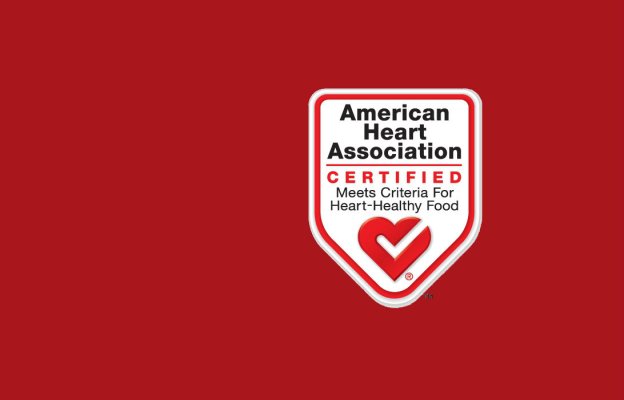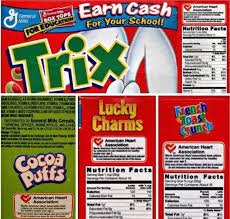If I am not mistaken, the AHA has pulled their "Heart Healthy" endorsements. Hopefully it was obvious that I was kidding. We never followed their recs and knew at the time high sugar was not good. But, in the 80's and early 90's we did follow the food pyramid somewhat. We ate a lot of pasta, upped carbs, reduced meat consumption and even added some vegan meals. My weight continued to climb as my health deteriorated. We now eat a low carb whole food diet with lots of veggies and meat, fish and olive oil. Problems solved.
How old are those cereal box pics you found? Our recently purchased box of Cheerios, upon inspection, does have the AHA heart-thingy. I hadn't noticed until our discussion.
The dietician who helped me though slowly losing 70 lbs was a great believer in "whatever works for you - within reason." I think she had so many folks fail in their quest to achieve permanent weight loss, better lipid stats and sustainable dietary habits that she was ready to grant some leeway (within reason) if things were working for you. She refused to go with any of the popular, so-called "fad" diets.
I did it with an approximately 48% carb, 28% protein and 24% fat (long term averages) over two years. About 1700 calories per day, but with a lot of day-to-day variation depending on vacation schedules and that sort of thing.
Both my doc (a DO, not an MD) and the dietician are believers in counting calories within a "basically healthy" (the meaning of that seems quite controversial!) diet and increasing exercise. I tend to be a "responsible for my own actions and outcomes" kind of person, so cutting portions wasn't too bad a challenge and continues to go OK. But the exercise part of the equation has been tougher. I started at about 70 years old and with some aches and pains related to geezerhood so finding excuses to do nothing beyond taking long, gentle walks has been easy.

Nobody's fault but mine.......
I haven't wanted to try low carb because I enjoy salads, veggies and fresh fruits and what I'm doing seems to be working. Otherwise, my diet doesn't sound very different from yours. Grilled salmon, asparagus, a bit of wild rice and a salad last night. Skinless chicken thighs, half a small sweet potato and grilled broccoli and a salad the night before. Walleye pizza tonight (substitute walleye fillets for the bread crust and add low-fat mozzarella, sauce, toppings, etc.) Lots of salads with deep greens, reds and yellows. Lots of colorful veggies. No-fat Greek yogurt. Small amounts of whole grains. I've known this was the right way to eat (more or less) all my life but admit to falling victim to my own lust for carbs, sugar and booze. Oh yeah..... I still have a beer or two or maybe a glass of wine most days.

The years I was stuffing my piehole with "bad stuff," I was making those decisions and wasn't sold on doing so by others. We all have to dig for information and make decision and I made a lot of mistakes.
I've been on a low dose of Atorvastatin for maybe 15 years so the following numbers reflect my lipid status on a low dose statin. It seems to be the weight loss and increase in exercise that have helped recently.
The first number is from July of 2017, early in the dietary change period. The second number is from March, 2019.
Cholesterol - 115 to 136
HDL - 56 to 89
Calc LDL - 47 to 40
Trig - 58 to 34
A1C - 5.0 to 5.0


 I'm not saying that public or private health agencies never recommended foods we today (at least for now) consider less healthy alternatives. But, I think there was plenty of good information out there to point people towards eating fresh produce and veggies, unprocessed whole grain carbs and lean protein. I just don't recall eating "crap" without the understanding there were better alternatives. Admittedly, I am quite prone to taking responsibility for my own decisions and actions and perhaps that plays into it.
I'm not saying that public or private health agencies never recommended foods we today (at least for now) consider less healthy alternatives. But, I think there was plenty of good information out there to point people towards eating fresh produce and veggies, unprocessed whole grain carbs and lean protein. I just don't recall eating "crap" without the understanding there were better alternatives. Admittedly, I am quite prone to taking responsibility for my own decisions and actions and perhaps that plays into it.

